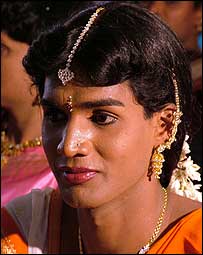Independent Research Study Shows that Dr. Pastel Prefers High School and Medical School Friends to College Friends
 Boston MA (GSP). According to a landmark study conducted by Dr. Frank Walmer and the MIT Statistics and Econometrics department, Dr. Amar Pastel, famous GSL embalmer, greatly prefers his high school and medical school friends to his college friends.
Boston MA (GSP). According to a landmark study conducted by Dr. Frank Walmer and the MIT Statistics and Econometrics department, Dr. Amar Pastel, famous GSL embalmer, greatly prefers his high school and medical school friends to his college friends.In a pivotal research paper to be published in April, combining sociological, anthropological and psychological scientific techniques, Pastel’s social interactions and behaviors have been quantified and the results have been surprising, to everyone except his college friends. The researchers used conversational positive regard, participation in group activities, retrospective accounts and questionnaires with friends as a measure of Pastel’s interactions and preferences.
The results were surprising, since the authors hypothesized that Pastel would be more amenable to his college friends as they scored highly on “true friendship” scales and held Pastel in high regard. At the very least, the authors expected to see no difference in preference since most people value all of their friends and understand they contribute differently, but equally, to the relationship.
Not so with Pastel. Amar Pastel rated his college friends as significantly worse than his high school and medical school friends, and this was reflected in the behavioral scores recorded by experimenters. The puzzling finding is that, objectively, Pastel had a superior and more fun time with his college friends, yet he rated them as worse than his medical school friends and much worse than his high school friends. Walmer said, “We think Pastel suffers from a sort of selective recollection bias. By all empirical measures, he had a great time with his college friends (in terms of going out more, inclusion, affection, etc.), yet he truly believes that his high school and medical friends are better and that he had more fun with them. While possibly a bald-faced lie, we concluded that this is the reality Pastel has constructed for himself; a false reality, but a reality to Pastel nonetheless.”
Walmer also discussed limitations with the study. “One possible flaw in our design is that he is still forming and developing friendships in medical school, so an end-point evaluator is not possible for those relationships. However, our assumption is that as he continues to have sub-par medical school friendships his opinion and memories of his college friends will fall at the same time as magnifying his fake high school friendships which he holds in such high regard.” Walmer also pointed out that his college friends were probably understating their friendship interactions with Pastel, which makes the conclusions all the more robust.
“Sadly, Pastel doesn’t know what he is missing and what he had with his college friends. When someone has good friends, it is important to maintain those relationships, instead of deliberately destroying it by failing to show an interest in their lives, through apathy, laziness, studying or just plain malicious ignoring.” Walmer added, “it is just sad.”







